Enduring Lessons of Leadership
For 10 years, the Duke Leadership Academy has left an imprint on participants
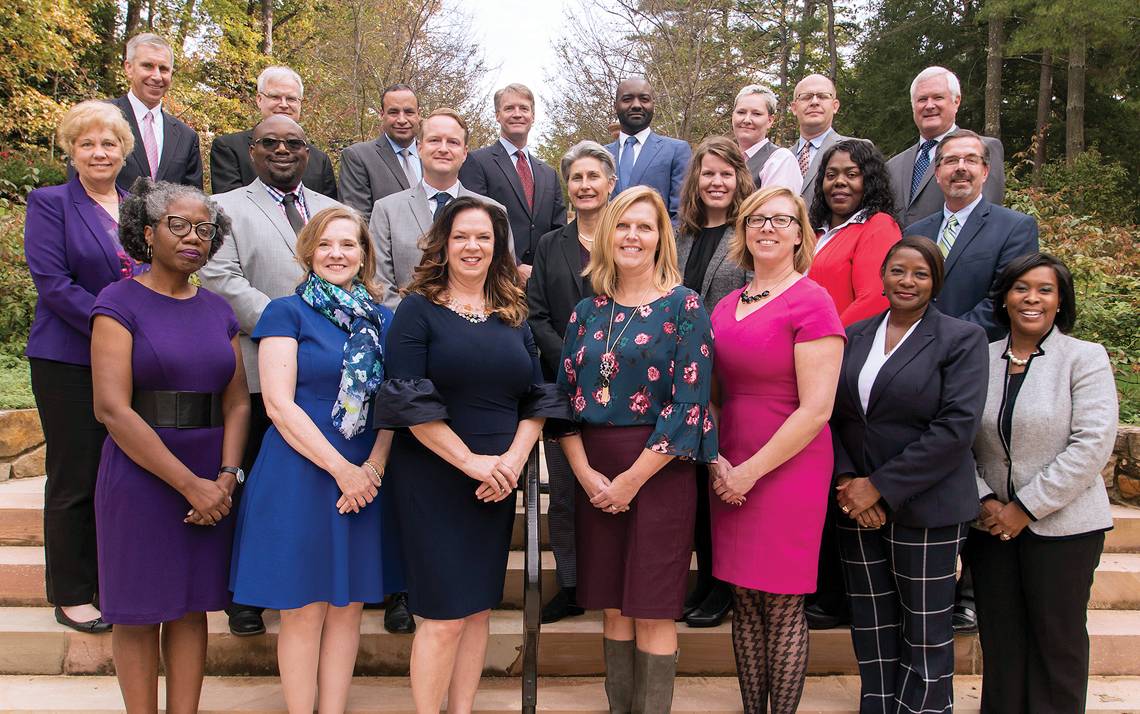
In front of a crowded meeting room, Valerie Ashby recounted her journey from a young scholar, unsure if she belonged in a competitive graduate school program, to the Dean of Trinity College of Arts & Sciences.
During her hour-long chat, Ashby discussed relationships with mentors, how her zeal for helping students eases the weight of other responsibilities, and how she balances work and life.
“If you’re going to encourage people, they have to see your whole life, they have to see the parts that are bumpy, they need to see how you recover, they need to see that you are fully human,” Ashby said. “If you look like a Superwoman, it can be discouraging.”
Her audience could relate. Drawn from management positions around Duke, the members of the 2018 class of the Duke Leadership Academy were selected for their promise. In December, after a year of group work, leadership training, honest feedback and conversations with Duke leadership, they’ll be in position to realize that promise after graduating.
“This is part of what we’re all about,” said Kyle Cavanaugh, Duke’s vice president for Administration. “From a true human resource perspective, it’s helping people get the most out of their ability and creating an environment where they can thrive.”
Celebrating its 10th year, the Duke Leadership Academy is sponsored by Duke Human Resources and based on ideas from the Fuqua/COLE Leadership Model. Designed to refine management styles and foster personal growth, the academy is a key part of strengthening Duke’s talent pipeline.
“Nobody gets a book on their first day of work, telling them how they should lead or grow,” said Keisha Williams, assistant vice president of Learning and Organization Development, the unit in Human Resources that hosts the academy. “This leadership program brings the cohort together so they can work together, learn from one another and share best practices.”
The Duke Leadership Academy’s roughly 250 alumni are scattered across the University. Here are their enduring lessons.
Building a Network
J. Alan Kendrick, Class of 2013
Assistant Dean for Graduate Student Development, Duke Graduate School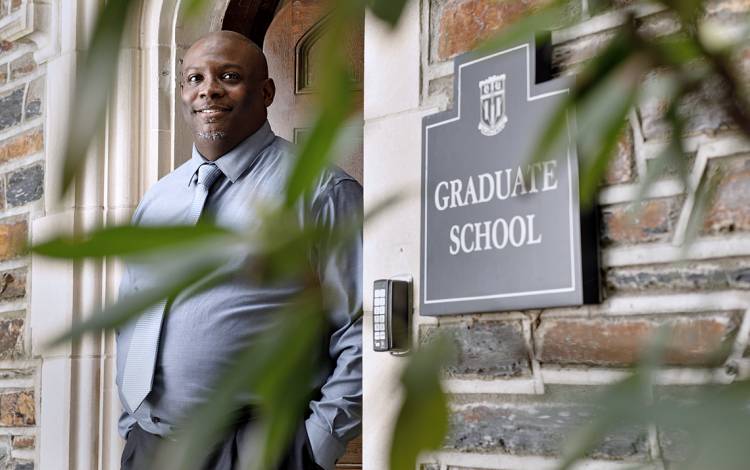
Two main pieces to Alan Kendrick’s job are reaching out to potential students to see if Duke’s graduate programs would be a good fit, and helping students navigate their new life at Duke.
To do this, Kendrick calls upon a wide network of contacts across campus. He speaks with faculty members to get a sense for recruiting needs of Duke Graduate School programs and to staff in many campus corners to ensure students have resources they need.
“We are all connected across campus,” Kendrick said. “That kind of stuff is important.”
His experience in the Duke Leadership Academy showed him the importance of developing a network of campus contacts and helped him to create one. He still meets with fellow academy alumni for periodic lunches and uses them as a trusted sounding board for new ideas.
“You can’t work in a vacuum,” Kendrick said. “The Duke Leadership Academy helped me build relationships so I could pick up the phone and say ‘Here’s what I’m thinking.’”
Believing in Yourself
Lori Zagiba, Class of 2014
Administrative Manager, Department of Economics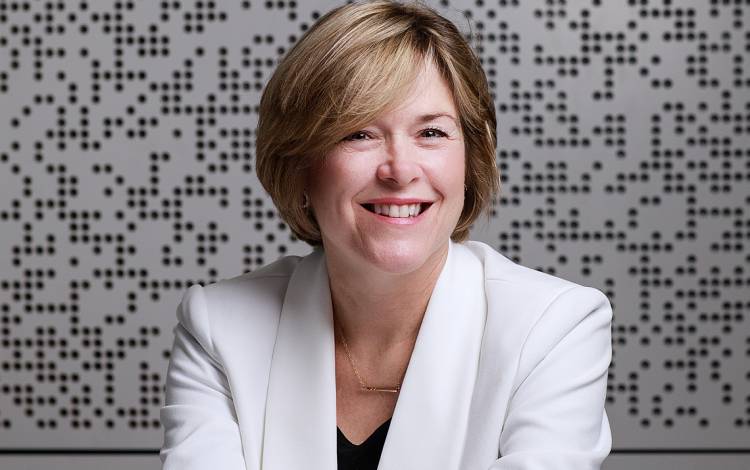
From 1989 to 2001, Lori Zagiba was out of the workforce and at home raising her children. When she returned as staff assistant with Duke University Hospital, office life had changed.
“Suddenly, everything was done with computers,” Zagiba said. “It was an adjustment.”
Zagiba found her footing and, by 2006, moved to her current role, overseeing much of the operations of the Department of Economics, which has around 70 faculty, 20 staff and 900 graduate and undergraduate students.
But even as she earned a spot in the Duke Leadership Academy, she said her unorthodox career arc left her somewhat uneasy with leadership duties that came along with her position, including building cohesion with colleagues who reported to her and others who didn’t.
However, once she began working on projects with other emerging leaders and hearing the winding paths some guest speakers took to their current positions, she realized she wasn’t alone.
“Being in the leadership academy showed me that there are a number of people in leadership roles at Duke who are a lot like me,” Zagiba said. “The details may be different, but we are facing the same sort of challenges. It was extremely affirming.”
Valuing Flexibility
Sierra Foxx, Class of 2017
Business Manager, Parking & Transportation Services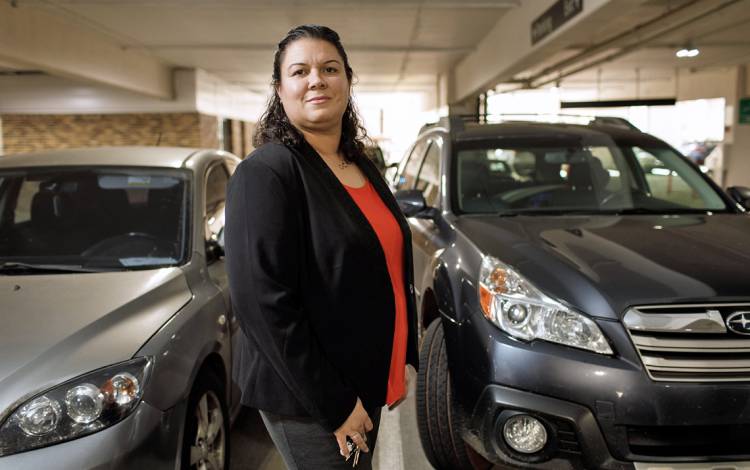
As part of the Duke Leadership Academy, participants take part in a 360-degree evaluation. It uses anonymous feedback from colleagues who work below, above and alongside participants to create a complete picture of how they function in the workplace.
“The feedback from the 360-evaluation is brutally honest,” Sierra Foxx said.
When she went through her evaluation, Foxx was encouraged by the results. It described her as a motivated self-starter who was adept at handling the challenge of supervising the financial side of Parking & Transportation Services. The department manages around 27,000 parking spaces, including those in eight garages and almost 200 surface lots and provides around 3.7 million rides to students and employees per year.
But one piece of feedback proved especially enlightening, albeit tough to hear. Her assertive leadership style left some colleagues feeling like she didn’t always consider a range of options when making decisions.
“I tend to be one of those people who gets a decision in their head and that’s what I run with,” Foxx said. “I needed to solicit other input better.”
She said the Duke Leadership Academy’s group projects offered immediate opportunities to work on improving that trait. Working with other emerging leaders, she used an open mind to foster true collaboration.
A year removed from the experience, Foxx has taken the lesson to heart, pointing to her willingness to try new ideas to enhance the parking pass renewal process.
“It’s important to listen to everyone, stand back for a minute, take it all in and then go from there,” she said.
Trust is Essential
Francisco Ramos, Class of 2017
Assistant Dean for Assessment and Evaluation, Duke Graduate School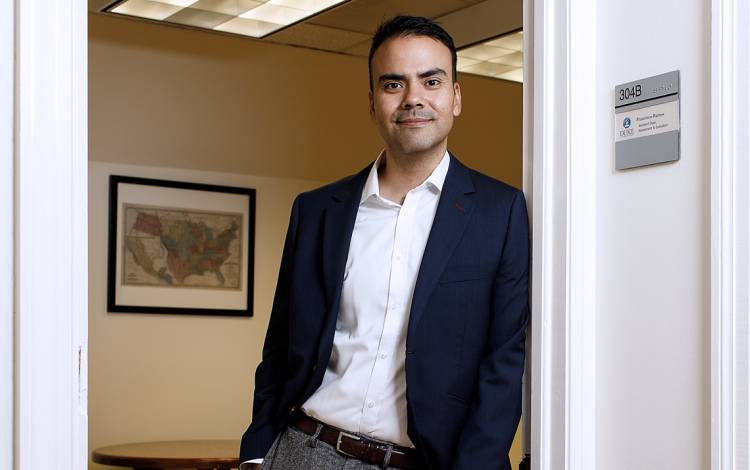
Looking back at the work he did for the Duke Leadership Academy’s group project, Ramos recalls the first – and in hindsight, most important step – was establishing trust among the seven members of his team.
Ramos compared the early sessions of group work to dancing with a new partner. It took time to figure out how each member worked best and how those personality styles could mesh into a cohesive team.
But doing that wasn’t difficult once the members could trust that their teammates were bringing effort and investment to the work.
“Once people see that we’re all working, there’s buy-in,” Ramos said. “It’s all about people and trust. If you have neither, then you’re going to be in a lot of trouble.”
Ramos said that lesson has bled over into how he approaches his job, part of which involves coordinating the process through which outside scholars examine Duke Graduate School programs and offer feedback. Without being able to earn the trust of the programs being evaluated, Ramos said this portion of his job would become very difficult.
“Without that baseline of trust, my life gets really hard,” Ramos said. “You need trust to be able to tell the hard truths. You need to trust that I’m telling you this to help you and because I’m being honest.”
See How You Fit
Shawna Young, Class of 2017
Executive Director, Duke Talent Identification Program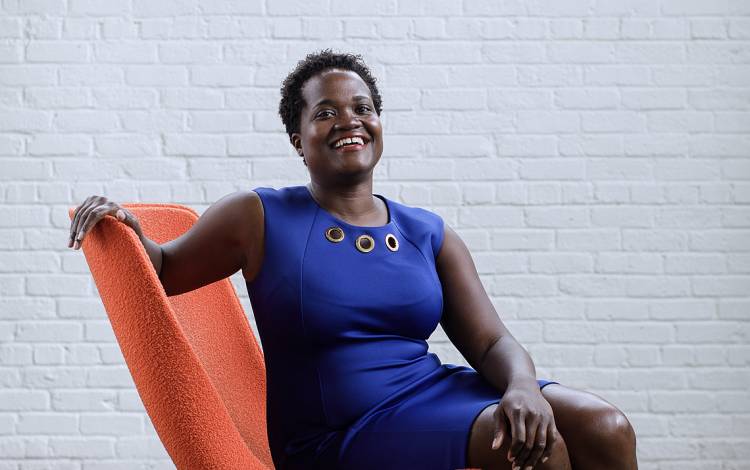
With Duke Leadership Academy classes filled with employees who have ascended into management roles, it’s no surprise that there are plenty of take-charge attitudes. But when work on the team projects begins, members learn that, at times, it’s important to be able to relinquish a degree of control.
While working with her group, Young found that the best way for her to contribute was to provide nimble, versatile support.
“I was trying to figure out how I can pick up pieces, fill holes and just be present when my team needed me,” Young said.
Young came to appreciate this concept at an important time. She’d arrived at Duke’s Talent Identification Program less than a year earlier, after leading the Office of Engineering Outreach Programs at the Massachusetts Institute of Technology.
At MIT, she had a small staff and needed to make most decisions. But with Duke TIP featuring a full-time staff of 90 and several seasoned directors who reported to her, Young soon was finding that the best way for her to help her co-workers was to give them as much autonomy as they needed.
“One thing I’ve learned about leadership is that, in an organization this large, if you try to make too many decisions, you become a bottleneck,” Young said. “As a leader, your hope is to, at times, be a facilitator, an influencer, but not always the decision maker. The people closest to the work should be the decision makers.”
Learn more about the Duke Leadership Academy here.
Have a story idea or news to share? Share it with Working@Duke.